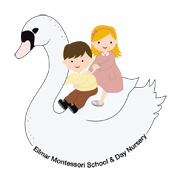S.E.N.D
Special Educational Needs and Disabilities
We are a Private Day Care Setting, we cater for children from 6 months right up to 4-5 years old a term before they go to Primary school.
Maria Montessori’s Teaching Method has supported children over a hundred years and it continues to be successful today, it is well balanced stimulating learning materials which are suitable for all children and tailored for the individual child. At Eilmar we want every child to be happy, feel valued and respected and we endeavour to support every child to achieve success.
A child or young person is said to have Special Educational Needs (SEN) if they have a learning difficulty or disability which requires special educational provision to be made for them; as defined in the Special Educational Needs & Disabilities Code of Practice (2014).
A child who has a significantly greater difficulty in learning than the majority of children of their age or who has a disability which either prevents or hinders the child from making use of educational facilities generally provided in schools within the Local Authority is deemed as requiring Special Educational Needs.
A child’s difficulty or disability or could be related to:
- Communication & Interaction
- Cognition & Learning
- Behavioural, Emotional and Social Development
- Sensory or Physical conditions
At Eilmar we develop a reflective practice cycle where through observation, planning and evaluation we can assess a child’s level of development in these areas and identify areas where a child may need more detailed observations or strategies tailored to the individual child to support the child’s ability to progress.
In the first instance your child’s Keyperson will talk to you about your child’s learning style, their likes and dislikes, whether you have attended Health Checks, Hearing and Vision Assessments, and how you feel about your child’s development. If you have any concerns about your child’s development tell the Keyperson who will be able to bear these concerns in mind when making the important initial observations of your child during their Transition into Nursery.
After these observations have been made the Keyperson will share her evaluation of the observations made with you and may also invite the SENCO (Special Educational Needs Co-ordinator) to decide on the next appropriate action. This may be implementing an Individual Educational Plan where strategies are identified to support your child (including 1 to 1 support) and provide further information on your child’s ability to make progress. The SENCO may also ask for your permission to make a referral to our Local Authority Inclusion Advisor from the Child Development Team to seek further advice or a Speech & Language Therapy referral.
An Individual Education Plan will detail specific, realistic targets, how they will be achieved, who will be responsible and will be reviewed regularly to assess their effectiveness. As parents you will be asked to include your views on each plan, this is especially important for you know your child best and will be key to representing his/her views during this process. During this time your child will receive a differentiated curriculum which is tailored to their needs and learning styles. If the Inclusion Advisor has been asked to observe your child and they will provide a report for you and your child may be referred to other outside professionals i.e. Occupational Therapists, Speech & Language Therapists, Physiotherapists, and Educational Psychologists for further observations. Observations by outside professional can provide evidence should you child require an Educational Health & Care Plan (EHCP).
School Environment & Outings
If you decide to join Eilmar Montessori and you are already aware that your child has a Special Educational Need or disability to ensure ease of accessibility you will be taken on a tour of the school as we value your opinion on whether our school is a suitable environment for your child. During this tour a Risk Assessment may be carried out since you are the experts on your child’s abilities and will be more able to identify areas where they made need additional support or adaptation or where they may encounter difficulty.
School outing are available to all and Risk Assessments are carried out to enable all children to participate. We hope this information is helpful for you going forward.
